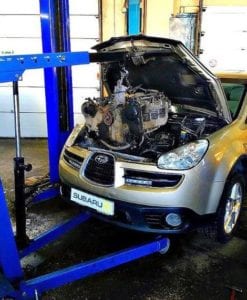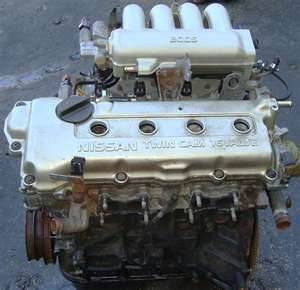
Protecting Your Investment
Engine replacement is a significant investment for any vehicle owner. Whether your car’s engine has succumbed to wear and tear or suffered a catastrophic failure, replacing it involves not just the cost of the new engine but also considerations about warranties that can affect your long-term peace of mind. In this guide, we’ll delve into the various warranty options available for engine replacement, helping you navigate this crucial aspect of automotive maintenance.
Why Is Warranty Important for Engine Replacement?
When you’re confronted with the prospect of engine replacement, the financial burden can be significant. It’s not just about the immediate cost but also about ensuring long-term reliability. A warranty becomes invaluable in this scenario, offering reassurance that if issues arise with the replacement engine due to defects in materials or workmanship, you won’t face additional substantial expenses. These warranties act as a safety net against unforeseen failures, covering repairs or replacements within specified timeframes and conditions.
However, the terms can vary widely between different warranties, affecting what is covered, for how long, and under what circumstances. Therefore, taking the time to comprehend these details is crucial for making a well-informed decision that protects both your vehicle and your financial stability in the future.
Types of Warranties
Manufacturer’s Warranty
Many replacement engines come with a manufacturer’s warranty. This type of warranty is provided by the company that produced the engine and usually covers defects in materials and workmanship for a specified period, such as one to three years. Manufacturer warranties vary by brand and model, so it’s essential to check the terms carefully.
Extended Warranty
Some automotive repair shops and dealerships offer extended warranties on engine replacements. These warranties typically extend beyond the manufacturer’s warranty and may cover additional components or provide longer coverage periods. Extended warranties can be a good option for those seeking extra protection and peace of mind.
Labor Warranty
In addition to warranties on parts, some warranties also cover the labor costs associated with replacing a defective engine. This type of warranty ensures that if the replacement engine fails due to a covered issue, you won’t have to pay for labor to have it replaced again.
Third-Party Warranties
There are also third-party warranty providers who offer coverage for engine replacements. These warranties may be purchased separately from the engine itself and can vary widely in terms of coverage and cost. It’s important to research third-party warranty providers carefully to ensure they are reputable and offer coverage that meets your needs.
What Do Warranties Typically Cover?
Warranty coverage can vary significantly depending on the provider and the type of warranty. However, here are some common areas that warranties may cover:
- Parts: Most warranties cover the cost of parts if they fail due to defects in materials or workmanship.
- Labor: Some warranties cover the cost of labor to replace a defective engine or parts.
- Towing: In some cases, warranties may cover the cost of towing if your vehicle breaks down due to a covered issue.
- Rental Car: A few warranties may include reimbursement for rental car expenses if your vehicle is out of commission due to a covered repair.
Factors to Consider When Choosing a Warranty
When evaluating warranty options for engine replacement, several factors should influence your decision:
Coverage Extensions
Some warranties offer the option to extend coverage beyond standard terms for added security, making them ideal for long-term vehicle ownership or frequent driving, providing peace of mind against unexpected repairs.
Exclusions and Conditions
Beyond specific exclusions, ensure you understand any conditions that could potentially void the warranty, such as neglecting recommended maintenance or unauthorized modifications, which could impact coverage eligibility.
Parts Quality
Verify the quality of parts covered under the warranty. Some warranties specify the use of original equipment manufacturer (OEM) parts for reliability, while others may allow for more cost-effective aftermarket or refurbished components.
Coverage for Additional Components
Evaluate whether the warranty extends coverage to related components affected by engine failure, such as cooling system parts or electrical components, to avoid unexpected out-of-pocket expenses.
Geographical Coverage
Confirm the warranty provides nationwide coverage or in areas where you frequently travel. Certain warranties may have restrictions based on geographic location, impacting the availability of repair services when needed.
Cost of Warranty
Compare the upfront cost of the warranty against potential savings in repair expenses. A higher-priced warranty may offer broader coverage or better terms, potentially reducing overall costs over the warranty period.
Customer Service Reputation
Research the warranty provider’s reputation for customer service, responsiveness to claims, and overall satisfaction among customers. Reliable customer support ensures smoother claim processes and timely assistance when needed.
Cancellation Policy
Understand the terms for canceling or transferring the warranty if you sell your vehicle or decide to change coverage providers. Clear cancellation policies prevent unexpected fees or complications when altering coverage arrangements.
Making an Informed Decision
Before committing to a warranty for your engine replacement, take the time to research and compare your options. Here are some steps you can take to make an informed decision:
- Read the Fine Print: Carefully review the terms and conditions of each warranty to understand what is covered, what is excluded, and any limitations or restrictions that may apply.
- Get Multiple Quotes: Obtain quotes for engine replacement and warranty coverage from different providers. Compare not only the cost but also the coverage details to find the best value for your needs.
- Ask Questions: Don’t hesitate to ask questions about anything you don’t understand or need clarification on. Understanding the warranty fully will help you avoid surprises down the road.
- Check Reviews and Ratings: Research the reputation of the warranty provider and read reviews from other customers. A reputable provider with positive reviews is more likely to offer reliable coverage and excellent customer service.
Engine Replacement Warranties Demystified
Engine replacement warranties can seem complex, but they’re essential for protecting your investment. These warranties typically cover defects in materials or workmanship, providing assurance that if your new engine fails prematurely, you won’t face significant financial burdens. Understanding the specifics is crucial: durations vary, and coverage may include parts, labor, or even additional components affected by the engine’s failure. Some warranties also stipulate where repairs must be done, influencing convenience and potential costs.
Navigating these options demands careful consideration. Compare warranty lengths, what’s covered (and not), any deductibles, and the ease of making claims. Research the reputation of warranty providers and understand the process for filing claims. Armed with this knowledge, you can confidently choose a warranty that safeguards your vehicle and your wallet.
Engine Replacement Warranty Facts You Need to Know
When replacing your engine, knowing the warranty facts is paramount. These warranties typically cover defects but vary widely in duration and specifics. They might exclude certain types of damage or require repairs to be conducted by authorized service providers. Understanding transferability options is crucial if you plan to sell your vehicle. Deductibles can also impact costs during claims. Evaluating these factors ensures you choose a warranty that aligns with your vehicle’s needs and your budget.
Research each warranty’s reputation and customer service quality. Consider the practicality of coverage in your area and weigh upfront costs against potential savings in future repairs. By doing so, you empower yourself to make an informed decision that protects your vehicle and provides peace of mind.
Mastering Your Engine Replacement Warranty Decision
Mastering your decision about engine replacement warranties involves careful consideration of several key factors. First and foremost, understanding the coverage duration and what precisely is covered can significantly impact your decision. Longer warranties may provide extended protection against unforeseen engine issues, while comprehensive coverage can include not just the engine but related components like the cooling system or electrical parts.
Moreover, the transferability of the warranty is crucial if you plan to sell your vehicle before the warranty period expires. A transferable warranty can increase the resale value of your car and provide added peace of mind to potential buyers. Additionally, evaluating deductibles and any limitations on authorized repair shops is essential for calculating potential out-of-pocket expenses and convenience in getting repairs done.
Conclusion
Navigating warranty options for engine replacement is critical for protecting your vehicle and budget. Understanding coverage durations, limitations, and transferability ensures you select a warranty that aligns with your needs. At Last Chance Auto Repair For Cars Trucks in Plainfield, IL, we emphasize clarity and reliability in our warranty offerings, aiming to provide peace of mind for every customer. Whether you’re seeking comprehensive coverage or evaluating deductibles and repair shop requirements, informed decisions now can save you from unforeseen expenses later. Choose wisely to drive confidently with the assurance that your engine replacement is covered by a trusted warranty.



